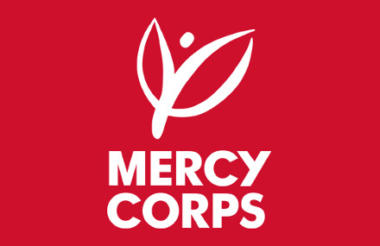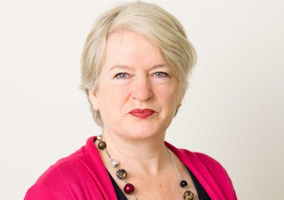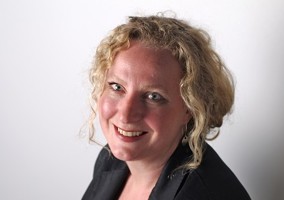International NGOs should not be labelled as “charities” because their work is much more complex than that, the executive director of Mercy Corps Europe said this week.
Simon O’Connell was speaking on a panel at the Bond Conference in London on Monday titled “Rewriting the media’s tale of aid”, when he was asked whether NGOs should stop calling themselves charities.
O’Connell said he had written about this subject on behalf of Mercy Corps, but also shared the same viewpoint on a personal level: that international aid and development organisations are not “just charities” and should reject that label.
“As someone who spent many years in sub-Saharan Africa, I have a fair degree of frustration about how we get pigeon-holed into this 'charity' box,” he said. “Frankly I’ve been staggered, since moving back to the UK four years ago, how frequently I’ve been told that I’m working for a charity. I never felt that in my 20-odd years overseas.”
He said that Mercy Corps’ work involves a lot of partnership working with the private sector, seeding, social ventures, and other “extraordinarily complex” programmes. His definition of charity, conversely, is “an organisation set up to provide help and raise money for those in need, or the voluntary giving of help, typically in the form of money, to those who need it”.
“That’s a wonderful thing and there are obviously many, many wonderful charities, but for us as an organisation, and many others like us, what we do is not just charity,” O’Connell said.
“I’m not trying to belittle in any way the importance of charity but where we are struggling as a sector is to articulate not just the extraordinary impact of what we’re doing but the extraordinary complexity of it. The risks that we’re taking, the challenges; even the failures, which is perfectly ok by the way because we’re also having that extraordinary impact. For me the ‘charity’ box just doesn’t cut it – it doesn’t work enough for us as a sector.”
Difficult to campaign politically
Another panellist, researcher Dr Kate Wright, added that one of the issues with charitable status is that it makes it difficult for organisations to deal explicitly with political issues.
“It makes it very difficult to campaign for things that you think are unjust politically, and it discourages NGO workers from even considering some of the more challenging questions around what they do,” she said.
“But on the other hand, if you’re a press officer it can play in your favour when you’re trying to place photos and videos with public service broadcasters who have got a remit about impartiality. They can’t accept material from any organisation which, as they would put it, has an axe to grind. So [charitable status] is a real double-edged sword. On one hand it prevents you doing some of the critical thinking you might want to do, and need to do, and on the other hand, without that status you probably wouldn’t be placing your material on BBC Online.”
Journalist and author Rachel Shabi said a common refrain from aid workers she had met while covering humanitarian work in the Middle East was that the people they were helping “don’t need charity, they need advocacy”.
“They don’t need charity solutions, they need political solutions - that came up again and again,” Shabi said. “It was almost like a trajectory that people went on - aid workers would arrive on the ground and then a couple of years later would be really frustrated by the constraints of not being able to do political advocacy.”
New relationship with the media
In a blog written last summer for the London School of Economics and Political Science, O’Connell put the case for a new relationship between NGOs and the media, one which acknowledged the complexity of the sector’s work.
In it, he said the word ‘charity’ had become synonymous with emergency relief and handouts, but that NGOs had become complicit in associating themselves with the label because they think the public and politicians have little appetite for the complexities of aid and development.
“So we portray ourselves as simple ‘charities’ – raising money to give to the needy – not the complicated agents of social change that we actually aspire to be,” he wrote.
Instead, the sector and the media needed to stop battling each other and both take responsibility for conveying the realities of the sector’s work.
He concluded: “Organisations like mine should do more to avoid presenting ourselves simplistically as ‘charities’, but instead take responsibility for representing the complexity of the challenges we seek to solve and the diversity of our work. No-one knows better than we do that the aid sector is not perfect. We should commit to increased transparency in explaining the realities of what we do.
“In turn, more media organisations should stop viewing aid agencies simply as a target for exposing hypocrisy and scandal. That does not mean the media should stop looking critically at what aid agencies are doing but, with the straw man of ‘simple charity’ removed, they should commit to exploring the realities of aid work objectively.”
|
Related articles












